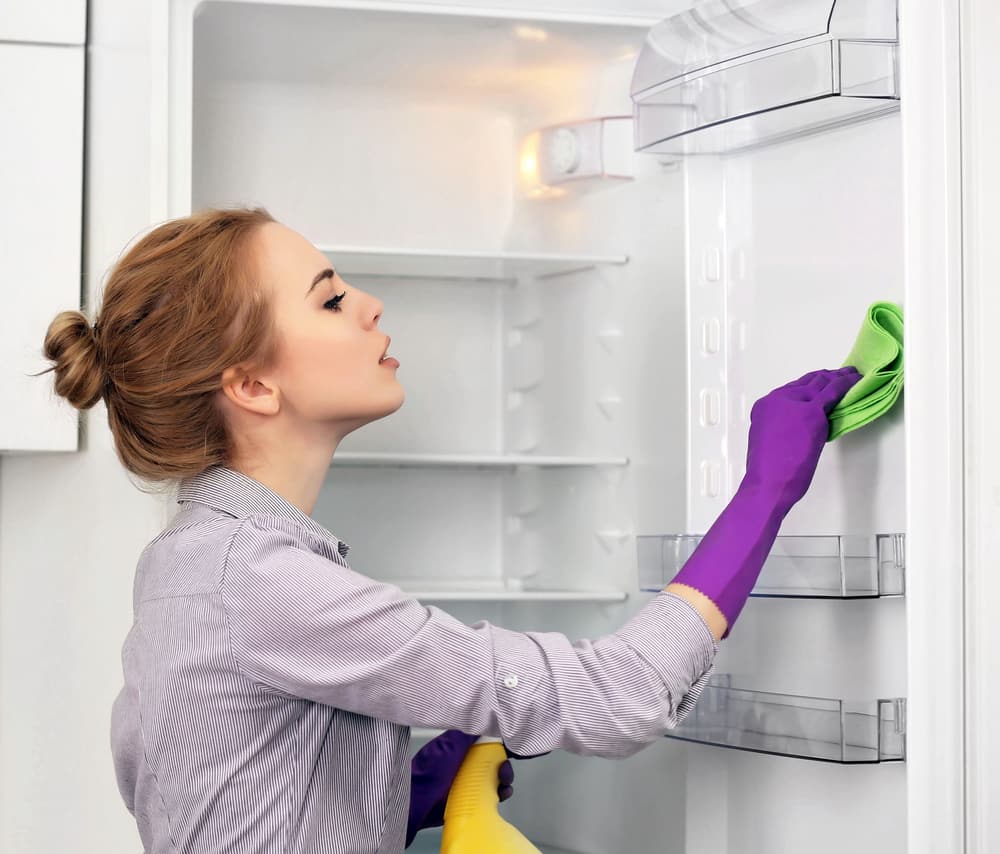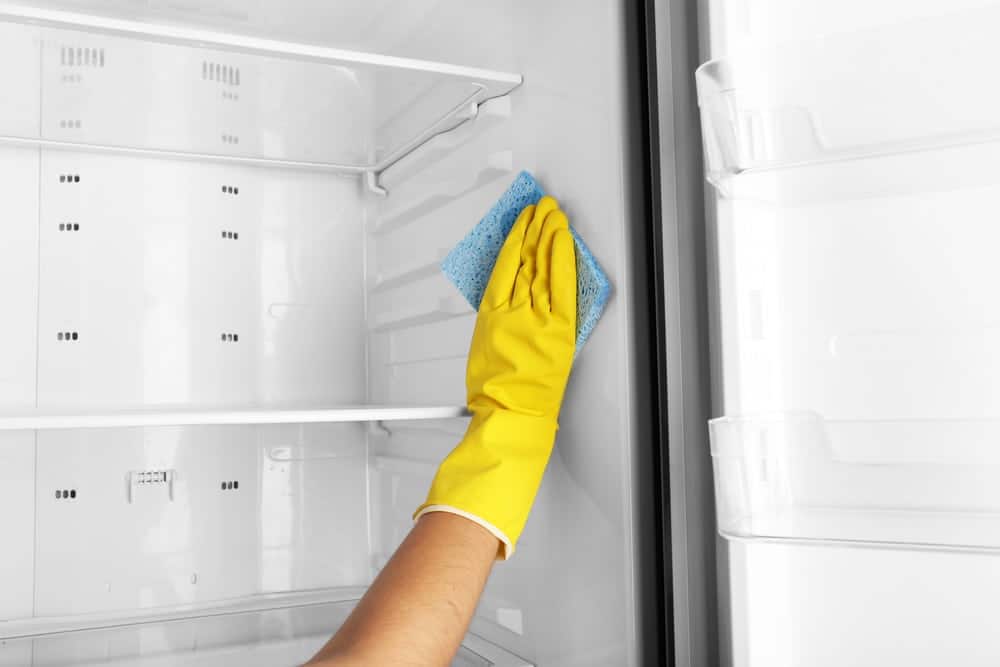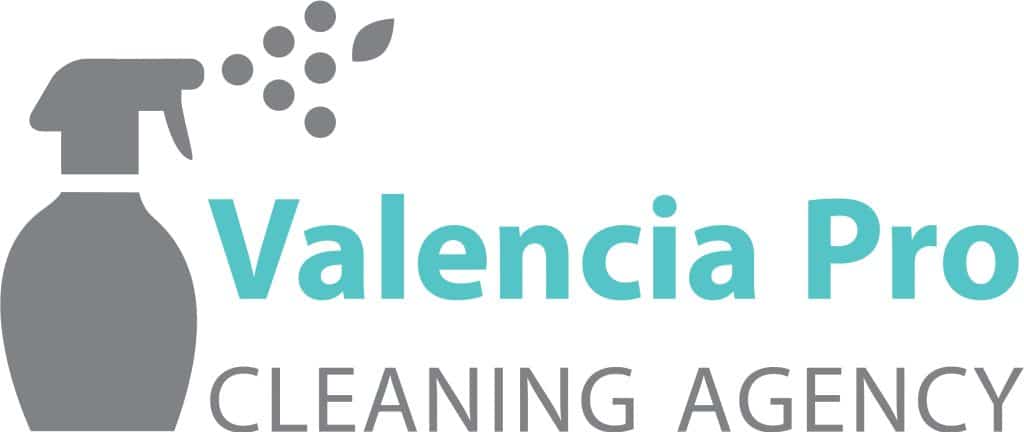Sometimes the toughest things to clean in your kitchen are those that you can’t see. Refrigerators are notorious for being a breeding ground for mold and bacteria. The inside of a fridge can get very dirty over time from spills and residue left behind by cooking oils or juices.
If you don’t clean this off every now and then, mold will start to develop. That’s why it’s necessary to have a clean refrigerator, and if your home is in Napa, CA, it is best to contact expert house cleaning services. In this blog post, we will go over three safe ways to keep your refrigerator clean so that it doesn’t become hazardous for your health.
What is best to use to clean inside of refrigerator?
 Some commercial cleaning products contain powerful disinfectants which can be used to clean a fridge. For those who want to get creative with natural cleaners, use vinegar diluted with water or rubbing alcohol (70% ethanol. Wipe down the shelves of your refrigerator with dish soap if they are plastic. You should also dry all surfaces thoroughly afterward so that mold doesn’t start growing again soon after you finish cleaning.
Some commercial cleaning products contain powerful disinfectants which can be used to clean a fridge. For those who want to get creative with natural cleaners, use vinegar diluted with water or rubbing alcohol (70% ethanol. Wipe down the shelves of your refrigerator with dish soap if they are plastic. You should also dry all surfaces thoroughly afterward so that mold doesn’t start growing again soon after you finish cleaning.
If you have hardwood floors in your kitchen, make sure to cover them before using any type of cleaner. Some types may damage the surface when exposed for long periods of time. As always, remember to turn off the circuit breaker before attempting any cleaning and be sure to wear protective gear such as gloves or a respirator.
Once you have cleaned your refrigerator, make sure that it is completely dry inside and out before plugging it back in. Use an old towel or dish rag when cleaning up spills so that they are absorbed rather than just wiping them away. A wet cloth will leave moisture behind while absorbing liquid from the spill. If you clean your fridge and other kitchen surfaces with a cloth that has already been used to clean up spills, you might be spreading pathogens and bacteria back on the surface.
How do I clean a refrigerator?
Many people will clean their refrigerators once a month, depending on how much they use the appliance and what type of food is stored inside.
The simplest way to clean your fridge is with water and dish soap. Fill one bucket with soapy water (it doesn’t need to be warm) and another bucket with plain old hot water from the tap. You’ll also want to have some paper towels handy for wiping down surfaces. To avoid cross-contamination, never wash anything that could go in your mouth like fruits or vegetables while you’re cleaning your fridge. Start by removing everything from your refrigerator—withdrawing shelves if possible—and wipe them down before washing them separately in soapy water.
Fill a cup with hot water and mix in some dish soap to create your own homemade cleaner, then apply it on all surfaces inside of the fridge (except for areas that you eat from). Let it sit for one minute before wiping off excess food or dirt and drying any wet places. Once everything is clean and dry, put things back where they belong.
How can I disinfect my refrigerator naturally?
You can also use alternative methods to disinfect your refrigerator without using chemicals if you don’t want to buy commercial products marketed towards cleaning refrigerators specifically.
Vinegar – Spray one cup of vinegar into a bowl filled with water while the door to the refrigerator is open – this process should be repeated at least twice and let it sit for 30 minutes in between.
Lemon juice – Lemon juice is another great natural fridge cleaner that is very effective at removing any tough buildup inside of your fridge without harming surfaces like stainless steel, plastic, glassware, etc. Put the lemon juice into an empty spray bottle, then fill up with water, just enough so there’s not too much liquid leftover. Spray onto dirty spots first letting it soak for a few minutes before wiping away with a damp cloth.
Baking soda – Baking soda is naturally antimicrobial, antibacterial and antifungal so it’s perfect for keeping your fridge clean in between other cleaning routines. Simply sprinkle about two tablespoons of baking soda across the bottom floor, then shake to distribute evenly. Let it sit overnight or at least six hours before vacuuming up or using a wet vacuum cleaner. The baking soda will soak any odors left behind by spills and foods that are past their prime while also absorbing oil buildup on surfaces like shelves and crispers.
Where in Napa, CA can I schedule a meeting with professional house cleaning services?
 Many people enjoy the finer things in life, but there are some chores that nobody enjoys. Cleaning your kitchen appliances on a regular basis can be quite time-consuming and tedious when you have other responsibilities to take care of as well!
Many people enjoy the finer things in life, but there are some chores that nobody enjoys. Cleaning your kitchen appliances on a regular basis can be quite time-consuming and tedious when you have other responsibilities to take care of as well!
Valencia Pro Cleaning Agency has set up partnerships with experienced professionals who will clean your precious home while guaranteeing that it’s healthy and safe from bacteria or germs. In the meantime, you can take a stroll to the Bale Grist Mill State Historic Park. Contact us today!
